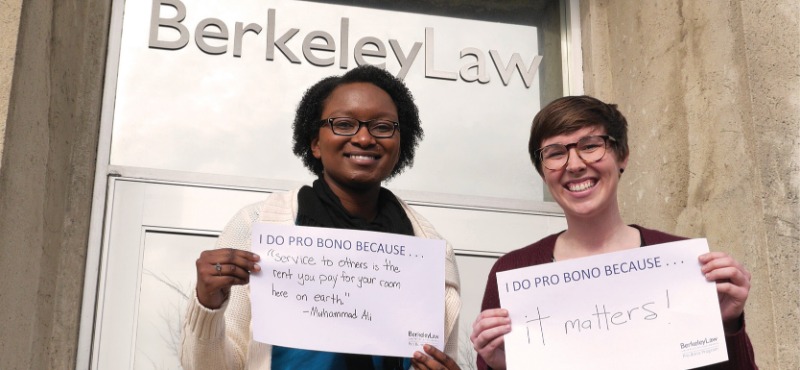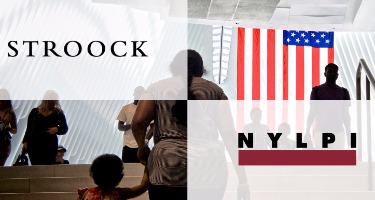Top 100 U.S. law firm Akerman LLP, in partnership with Disability Rights Florida, Inc. and the Justice Department, secured a historic settlement for Ability Housing that will protect the rights of persons with disabilities to live in the neighborhood of their choosing. The outcome is precedent-setting across Florida and affirms the importance of federal civil rights laws in protecting disabled persons from discrimination in local land use decisions.
Under the settlement, which was approved by the Jacksonville City Council on May 23, 2017, the City is required to end discriminatory housing practices and amend its zoning code to ensure compliance with the Fair Housing Act (FHA) and Americans with Disabilities Act (ADA). The City will pay $400,000 to Ability Housing and $25,000 to Disability Rights Florida to cover a portion of their expenses. Following a competitive bid process, the City will award a $1.5 million grant for the development of permanent supportive housing for individuals with disabilities. A consent decree was also reached in a related case with the DOJ, which levies a $25,000 civil penalty against the City.
"This is a watershed moment for persons with disabilities in Jacksonville. Today's outcome allows Ability Housing to successfully carry on its mission — ensuring people with disabilities receive supportive housing and services where both they and their families want them to live," said real estate and land use lawyer Thomas Ingram, who led the Akerman team representing Ability Housing. "This entire process has been a community education on the rights and well-being of the disabled, and now the City has agreed to take important steps that will protect people for generations to come."
"Ability Housing would not have been able to proceed with this action without the pro bono service of the Akerman firm," said Ability Housing executive director, Shannon Nazworth. "They invested greatly in the successful resolution of this litigation, and should be commended for their efforts to protect the civil rights of persons with a disability. This case is important for the City of Jacksonville and the State of Florida. We hope this outcome will demonstrate to other communities how costly it is to discriminate against housing for persons with disabilities. The staff and board of Ability Housing want to especially thank Tom Ingram, Edward Cole and Allison Stocker for their many hours of dedicated service; and their passionate commitment to defending the rights of our most vulnerable neighbors."
The dispute arose in March 2014, when Ability Housing, a nonprofit provider of housing to homeless and disabled individuals, was awarded a grant by the Florida Housing Finance Corporation (FHFC) to revitalize a twelve-unit, multifamily apartment building in the historic neighborhood of Springfield in Jacksonville for the purpose of creating permanent supportive housing for homeless veterans with a disability. As part of the grant application process, City officials agreed in writing that the planned housing was allowed under existing zoning requirements. After receiving significant pressure from neighborhood opposition, the City subsequently reversed its interpretation of its Zoning Code and denied Ability Housing's requests to proceed with the development. The City asserted that although the apartment building was zoned for multifamily use, Ability Housing's proposal was illegal because the residents would have disabilities, including mental illness, and receive services for their health care needs as part of the permanent supportive housing program. The City argued that this type of use for the building was prohibited in the neighborhood under a zoning overlay district. Ability Housing and its attorneys repeatedly asserted that distinguishing this project from a regular multifamily dwelling on the basis of the residents' disabilities and their related needs was illegal under the FHA and ADA. The City repeatedly affirmed its decision and its rationale, blocking the project.
Without permission to proceed with the project, Ability Housing lost the FHFC grant. Akerman filed a federal lawsuit against the City on Ability Housing's behalf in November of 2015, declaring the City's actions and specific zoning provisions illegal and enjoining the City from violating the FHA and ADA. Disability Rights Florida, the statewide designated protection and advocacy system for individuals with disabilities, filed a similar lawsuit shortly thereafter, and eventually the two suits were consolidated. During that time, the DOJ initiated an investigation, culminating in its own lawsuit against the City in December 2016. According to the lawsuit filed by the United States, the City of Jacksonville also instructed another nonprofit organization to withhold funds from Ability Housing in retaliation for its lawsuit against the City.
Ability Housing was represented pro bono by Akerman. A cross-practice team of Akerman lawyers in the Jacksonville office was led by real estate and land use lawyer Thomas Ingram, and the litigation was handled by Allison Stocker. Their efforts were supported by David Boyer, Chief of Investigations and lead attorney for Disability Rights Florida, the DOJ's Civil Rights Division and the U.S. Attorney's Office for the Middle District of Florida.
Insight
Akerman Represents Ability Housing in Historic Fair Housing Settlement
Pro Bono Victory Protects Future Housing Development for Disabled and Homeless in Jacksonville





























